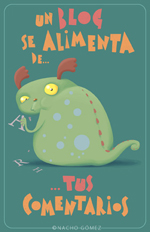Contexto: Spoon River Anthology es un conjunto de poemas de Edgard Lee Masters que se leen como si fueran las inscripciones de las tumbas de los habitantes de Spoon River, un pequeño poblado que por la imaginación y las vivencias del autor se puede situar en una región de Illinois, Estados Unidos. Después de muertos, cualquiera de los habitantes puede sincerarse respecto a cómo fue su vida. Es curioso verlos hablar sin temor, burlarse, ser honestos, incluso contar versiones contradictorias de lo que les ocurrió, aun si lo hacen después de su partida.
He aquí lo que los McGee tienen que decirnos cada uno respecto al otro:
Ollie McGee
Have you seen walking through the village
A man with downcast eyes and haggard face?
That is my husband who, by secret cruelty
Never to be told, robbed me of my youth and my beauty;
Till at last, wrinkled and with yellow teeth,
And with broken pride and shameful humility,
I sank into the grave.
But what think you gnaws at my husband’s heart?
The face of what I was, the face of what he made me!
These are driving him to the place where I lie.
In death, therefore, I am avenged.
Fletcher McGee
She took my strength by minutes,
She took my life by hours,
She drained me like a fevered moon
That saps the spinning world.
The days went by like shadows,
The minutes wheeled like stars.
She took the pity from my heart,
And made it into smiles.
She was a hunk of sculptor's clay,
My secret thoughts were fingers:
They flew behind her pensive brow
And lined it deep with pain.
They set the lips, and sagged the cheeks,
And drooped the eyes with sorrow.
My soul had entered in the clay,
Fighting like seven devils.
It was not mine, it was not hers;
She held it, but its struggles
Modeled a face she hated,
And a face I feared to see.
I beat the windows, shook the bolts.
I hid me in a corner
--And then she died and haunted me,
And hunted me for life.





























































































5 comentarios:
Qué interesante. Imagínate si pudiéramos hacer algo así, yo no sé si hablaría, si esclarecería lo que mis silencios esconden.
Y, al revés. ¿Qué verdades podríamos encontrar? ¿Qué nuevas explicaciones?
Pero, al fin y al cabo, sería un sinsentido. Es decir, ¿ya pa' qué?
(olvidé palomear la casilla de abajo :S)
Pues sí, en el poemario se aprovecha esta circunstancia para hacer hablar a los personajes ya sin temor a nada y sin ninguna otra restricción para ser sinceros.
Pues ya pa'qué... bueno, puede servir para que gente como nosotros se entretenga o fisgonee...
¿¿No te gustaría enterarte de los chismes de tus conocidos??
Jajaja, sí, sí me gusta(ría)
Pero, insisto, la cosa es saberlos en vida. Mientras tanto, tienes razón, está bueno el chisme. Al menos la gente que se muere dejaría de ser buena nomás porque está muerta.
Deeeh... Ojalá un día me pueda conseguir varios de los libros que has citado acá, ya le traigo ganas a unos cuantos.
¿Dejar de ser bueno porque ya no tienes nada que temer ni que rendir cuentas? Eso suena al mito del anillo de Giges...
Ya sabes, literatura de calidad... bueno, aunque los libros son como la comida: hay partes o cosas que no nos gustan, y al igual que la alimentación... una que otra vez nos podemos dar el lujo de una chatarrilla.
Publicar un comentario